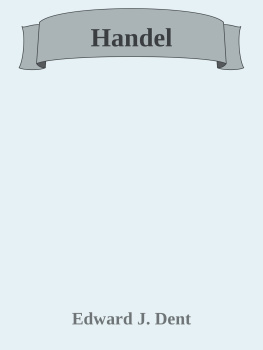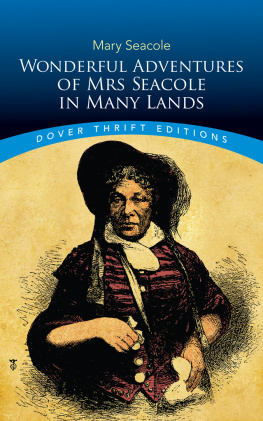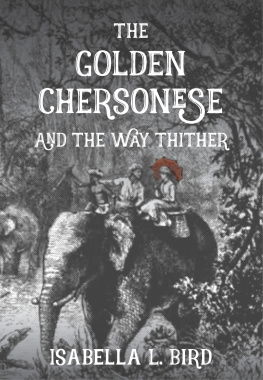File produced by Stan Goodman, David Widger and Distributed Proofreaders
HANDEL
By Edward J. Dent
CONTENTS
DETAILED CONTENTS
CHRONOLOGY
CHAPTER I
CHAPTER II
CHAPTER III
CHAPTER IV
CHAPTER V
CHAPTER VI
CHAPTER VII
BIBLIOGRAPHY
HANDEL'S WORKS
DETAILED CONTENTS
Chapter I
Birth and parentagestudies under Zachow at HalleHamburgfriendship and
duel with MatthesonAlmiradeparture for Italy.
Chapter II
Arrival in ItalyRodrigoRome: Cardinal Ottoboni and the
ScarlattisNaples: Venice: Agrippinaappointment at HanoverLondon:
Rinaldo.
Chapter III
Second visit to LondonItalian operaGeorge I and the Water
Musicvisit to GermanyCanons and the Duke of Chandosestablishment of
the Royal Academy of Music.
Chapter IV
BuononciniCuzzoni, Faustina, and Senesinodeath of George IThe
Beggar's Operacollapse of the Academy.
Chapter V
Handel naturalizedpartnership with HeideggerEstherthe Opera of
the Nobilityvisit to Oxfordopera season at Covent GardenCharles
Jennenscollapse of both opera-houses.
Chapter VI
Bankruptcy and paralysisvisit to Aix-la-Chapellethe last
operasVauxhall GardensHandel's "borrowings"visit to
IrelandMessiah and other oratorios.
Chapter VII
Judas MaccabaeusGluckThomas Morellincipient blindnessTelemann and
his gardenlast oratoriosdeathcharacter and personality.
Bibliography and List of Works
CHRONOLOGY
1685.... Birth at Halle.
1702.... Entered University; organist of the Cathedral.
1703.... Went to Hamburg.
1705.... First opera: Almira (Hamburg).
1707.... Arrival in Italy.
1710.... Appointment at Hanover; first visit to London.
1711.... First London opera: Rinaldo.
1712.... Second visit to London.
1717.... Appointment to the Duke of Chandos.
1720.... Opening of Royal Academy of Music (Opera).
1726.... Naturalized as a British subject.
1728.... The Beggar's Opera. Collapse of the Academy.
1732.... First public oratorio: Esther.
1733.... Festival at Oxford.
1737.... Collapse of Opera; Handel bankrupt and paralysed.
1741.... Last opera: Deidamia.
1742.... Messiah at Dublin.
1751.... First signs of blindness. Last oratorio Jeptha.
1759.... Death in London.
CHAPTER I
Birth and parentagestudies under Zachow at HalleHamburgfriendship and duel with MatthesonAlmiradeparture for Italy.
The name of Handel suggests to most people the sound of music unsurpassed in massiveness and dignity, and the familiar portraits of the composer present us with a man whose external appearance was no less massive and dignified than his music. Countless anecdotes point him out to us as a well-known figure in the life of London during the reigns of Queen Anne and the first two Georges. He lies buried in Westminster Abbey. One would expect every detail of his life to be known and recorded, his every private thought to be revealed with the pellucid clarity of his immortal strains. It is not so; to assemble the bare facts of Handel's life is a problem which has baffled the most laborious of his biographers, and his inward personality is more mysterious than that of any other great musician of the last two centuries.
The Memoirs of the Life of the late George Frederic Handel, written by the Rev. John Mainwaring in 1760, a year after his death, is the first example of a whole book devoted to the biography of a musician. The author had never known Handel himself; he obtained his material chiefly from Handel's secretary, John Christopher Smith the younger. Mainwaring is our only authority for the story of Handel's early life. Many of his statements have been proved to be untrue, but there is undoubtedly a foundation of truth beneath most of them, however misleading either Smith's memory or Mainwaring's imagination may have been. The rest of our knowledge has to be built up from scattered documents of various kinds, helped out by the reminiscences of Dr. Burney and Sir John Hawkins. For the inner life of Mozart and Beethoven we can turn to copious letters and other personal writings; Handel's extant letters do not amount to more than about twenty in all, and it is only rarely that they throw much light on the workings of his mind.
The family of Handel belonged originally to Breslau. The name is found in various forms; it seems originally to have been Hndeler signifying trader, but by the time the composer was born the spelling Hndel had been adopted. This is the correct German form of his name; in Italy he wrote his name Hendel, in order to ensure its proper pronunciation, and in England he was known, for the same reason, as Handel. The Handels of Breslau had for several generations been coppersmiths. Valentine Handel, the composer's grandfather, born in 1582, migrated to Halle, where two of his sons followed the same trade. His third son, George, born 1622, became a barber-surgeon. At the age of twenty he married the widow of the barber to whom he had been apprenticed; she was twelve years older than he was. In 1682 she died, and George Handel, although sixty years of age, married a second wife within half a year. Her name was Dorothea Taust; her father, like most of his ancestors, was a clergyman. Her age was thirty-two. Her first child, born in 1684, died at birth; her second, born February 23, 1685, was baptised the following day with the name of George Frederic.
The town of Halle had originally belonged to the Dukes of Saxony, but after the Thirty Years' War it was assigned to the Elector of Brandenburg. George Frederic Handel was therefore born a Prussian. But Duke Augustus of Saxony was allowed to keep his court at the Moritzburg in Halle, and it was this prince who made George Handel his personal surgeon. After Duke Augustus's death in 1680, Halle was definitely transferred to Brandenburg, and the new Duke, Johann Adolf, took up his residence at Weissenfels, twenty-five miles to the south-west of Halle. At the time of George Frederic's birth, Halle had relapsed into being a quiet provincial town. The musical life of Germany in those days was chiefly centred in the numerous small courts, each of which did its best to imitate the magnificence of Louis XIV at Paris and Versailles. But the seventeenth century, although it produced very few musicians of outstanding greatness, was a century of restless musical activity throughout Europe, especially in the more private and domestic branches of the art. The Reformation had made music the vehicle of personal devotion, and the enormous output of a peculiarly intimate type of sacred music, both in Germany and in England, shows that there must have been a keen demand for it in Protestant home life.
George Handel, the surgeon, seems to have hated music. There is no evidence that either his wife or her sister, who shared their home after her father's death in 1685, was musically gifted, but the mere fact of their being the daughters of a Lutheran pastor makes it probable that they had had some education in the art. We may safely guess that the composer inherited his musical talents from the Taust family. He showed his inclination for music at a very early age, with such insistence indeed that his father forbade him to touch any musical instrument. There is a well-known story of his contriving to smuggle a clavichord into a garret without his father's knowledge in order to practise on it while the rest of the family were asleep, but for this tale Mainwaring is our only authority. It is very probable that old Handel was irritated by the sound of his son's early efforts and regarded music as a waste of time; his wife may perhaps have encouraged the child's obvious abilities, taking care that he made music only in some part of the house where he would not disturb his father.
Next page




